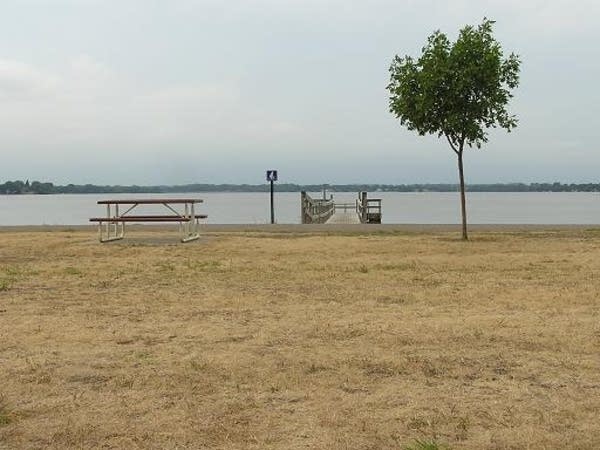Chanhassen restricts water usage
Go Deeper.
Create an account or log in to save stories.
Like this?
Thanks for liking this story! We have added it to a list of your favorite stories.

Chanhassen city manager Todd Gerhardt says the city has experienced bad drought conditions before, but not like this.
Gerhardt, who's worked for the city for 22 years, says an aquifer that is responsible for 30 percent of the city's water has dipped to extremely low levels, and three of the city's 11 wells have failed.
"That aquifer has been drawn down to a level where those three wells have pumped either sand or air into the pumps, and have damaged those wells," he says.

Gerhardt the motors in the well pumps burned out after sucking up sand and air. He says repairs will cost $15,000 to $35,000 for each of the wells. Gerhardt estimates that one of the wells should be back in operation by the end of this week.
Turn Up Your Support
MPR News helps you turn down the noise and build shared understanding. Turn up your support for this public resource and keep trusted journalism accessible to all.
Gerhardt says drilling deeper into the aquifer is not an option, because the water source for these three wells is a what's known as a "drift aquifer."
"If you were to cut a cross-section of the earth away, you would see kind of a rolling hill in there. There's pockets of water in those aquifers, and we're close to the bottom of those aquifers," he says.
Gerhardt says the sprinkler ban does not include the 500 or so private wells in the city. He says people can still hand-water their lawns and plants, which means they can fill up buckets or watering cans. Or they can use a hose, as long as they control the hose.
Gerhardt says before the three wells ran dry, the city was already using an odd/even watering system. That's a system in place in many cities where, for example, on odd-numbered days of the month people with odd address numbers can water, and the same for even-numbered addresses on even days.
The city of Woodbury has been using the odd/even system for more than 20 years. The city also restricts watering between noon and 5 p.m. each day. Woodbury Mayor William Hargis says that's because during that time, much of the water just evaporates and doesn't do the grass as much good.
Hargis, who's lived in Woodbury since 1971, says this is one of the hottest and driest summers he can remember. But he says the city isn't implementing any additional water restrictions.
Hargis says the city encourages residents to conserve water. And it has added a disincentive for high water use.
"We put in place a graduated water rate system. So the more water you use, the higher the per-gallon cost," says Hargis.
In Chanhassen, the sprinkler ban will continue until further notice. City officials are hoping for rain, but recent weather patterns do not bode well.
DNR climatologist Greg Spoden says the whole state is experiencing a significant drought. Some places are drier than others.
"In fact, Chanhassen has been among the driest areas in central, east central Minnesota thus far this summer," Spoden says. "At the National Weather Service office in Chanhassen where rainfall measurements have been made, only .84 inches of precipitation was recorded in June. An additional 1.07 in July."
That's less than two inches in two months. Spoden says at this time of year, that part of the state should see an inch of rain per week.
Forecasters say the best chance for rain in the near future is late Thursday.
The dry, hot weather is also affecting the state's farm fields. The weekly crop report shows more than 70 percent of Minnesota's topsoil is rated short or very short of moisture.
With the exception of the northwest corner of the state, rainfall has been significantly below normal since April.
In addition to the dry weather, insects are causing problems for some farmers. The crop report indicates some producers have begun spraying for soybean aphids in the southeastern corner of the state.
Dear reader,
Political debates with family or friends can get heated. But what if there was a way to handle them better?
You can learn how to have civil political conversations with our new e-book!
Download our free e-book, Talking Sense: Have Hard Political Conversations, Better, and learn how to talk without the tension.




